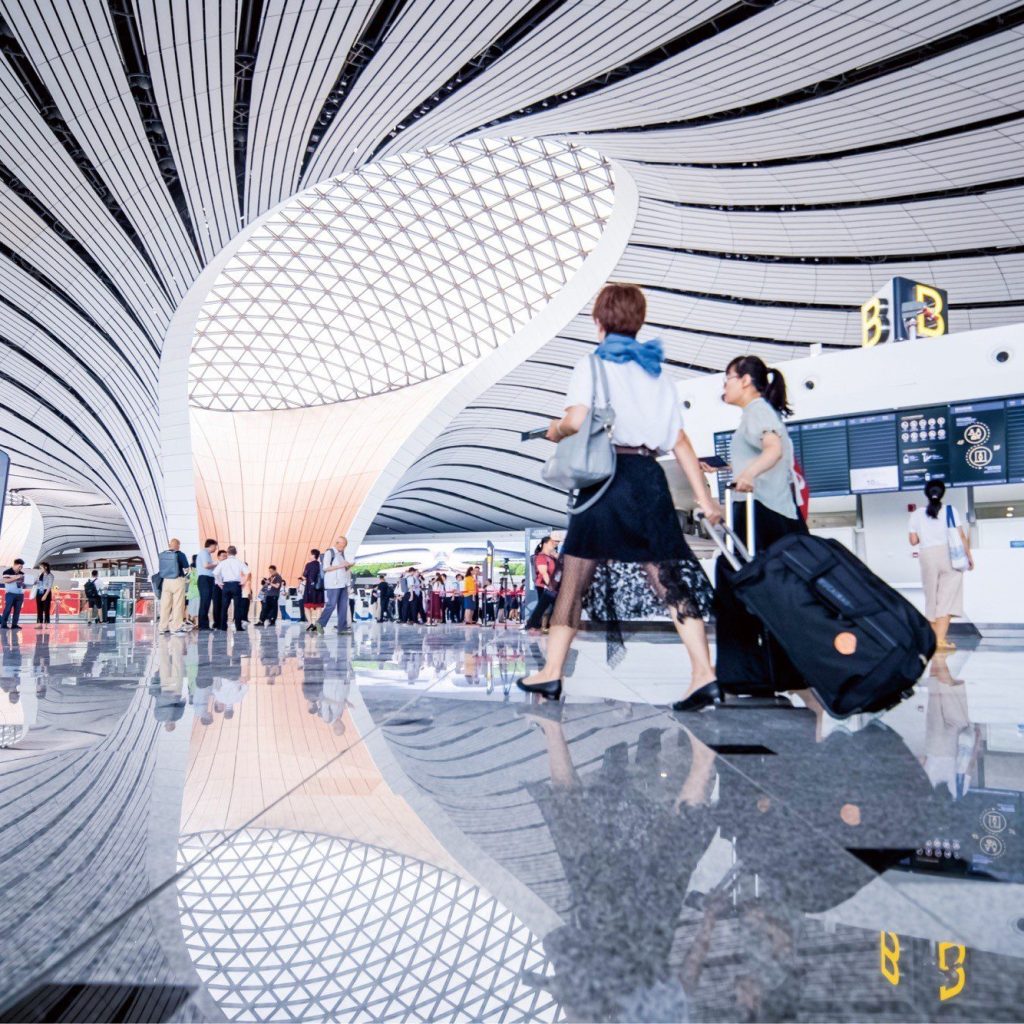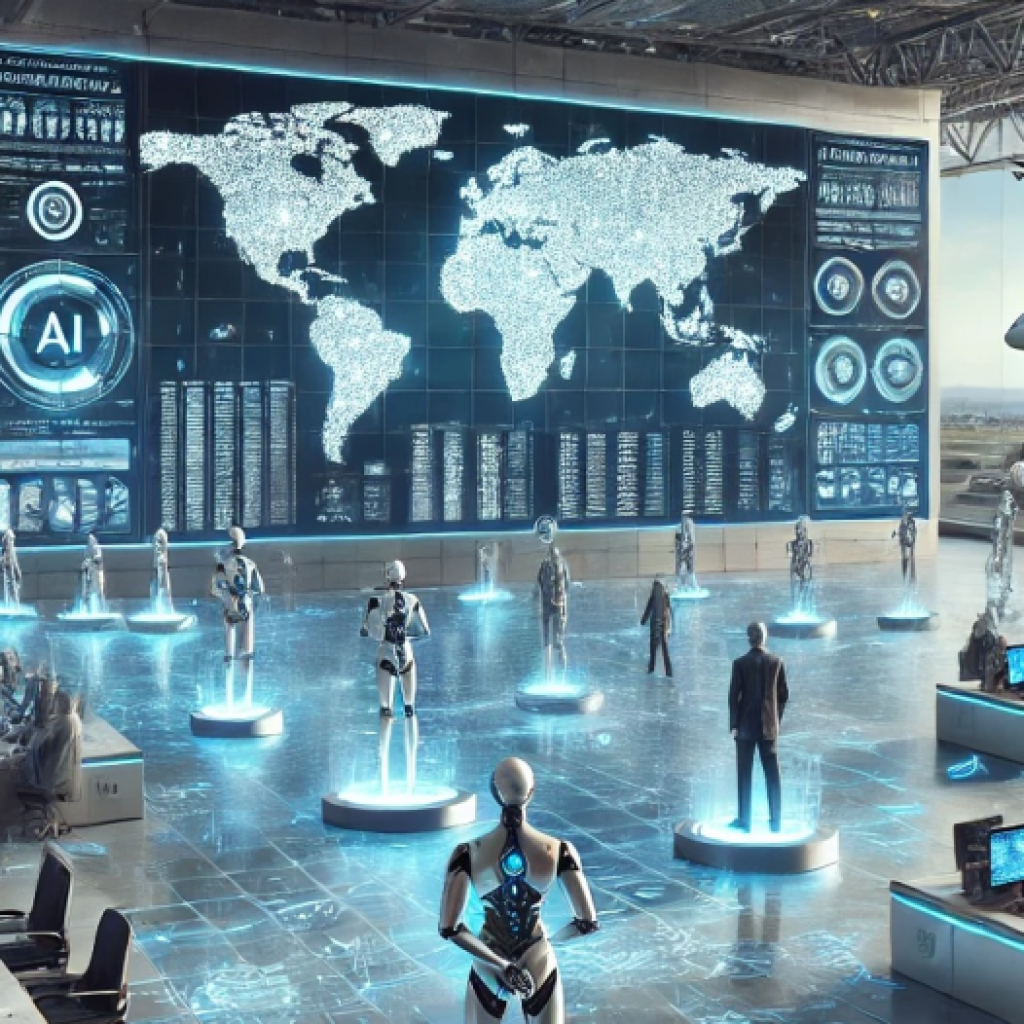As we look toward the future of travel, it becomes clear that AI is not just a passing trend but a fundamental shift in how we interact with the world around us. The travel industry is undergoing a revolution, and the driving force behind this transformation is artificial intelligence (AI). From smart airports to AI-driven travel assistants and personalized itineraries, AI is changing the way we plan, experience, and navigate our travel adventures.
The Rise of Smart Airports

Airports have long been a critical hub in the travel journey, but they are now becoming more intelligent and efficient thanks to AI technology. The future of air travel promises smoother and more seamless experiences, with AI making airports smarter and more responsive. Take, for instance, biometric identification systems at airport security checkpoints. By using facial recognition and other advanced technologies, travelers can speed through security checks, minimizing long queues and reducing waiting times.
AI is also helping manage the flow of passengers more effectively. With AI-powered systems analyzing real-time data, airports can predict and adjust for crowding, delays, and even optimize flight schedules to ensure smoother operations. These smart systems enhance both safety and comfort, ensuring that travelers experience fewer disruptions on their journey.
AI-Driven Travel Assistants

For many travelers, the experience of navigating an unfamiliar destination can be overwhelming. That’s where AI-driven travel assistants come into play. These virtual assistants can provide recommendations, translations, and real-time updates, making it easier for travelers to explore new places with confidence.
One of the most popular applications of AI in travel is chatbots. These AI-powered bots can answer travelers’ questions, help with booking flights and accommodations, and provide personalized recommendations based on preferences. Whether it’s suggesting a restaurant, offering tips for sightseeing, or even booking a taxi, AI assistants make travel planning and execution incredibly convenient.
Moreover, AI-powered apps and platforms are capable of understanding and adapting to individual travel preferences. For example, if you’re an adventure traveler, the app might suggest destinations known for outdoor activities. Alternatively, if you’re seeking relaxation, it might offer serene spots with luxurious resorts or wellness retreats.
Personalized Itineraries Powered by AI Tools

One of the most exciting developments in the future of travel is the ability to create highly personalized travel itineraries. Gone are the days of relying on generic travel packages. AI tools can now craft travel plans tailored to your specific interests, budget, and timeframe, transforming your journey into a truly unique experience.
AI algorithms analyze vast amounts of data to recommend destinations, activities, and services based on your previous trips, preferences, and social media interactions. These platforms often consider factors like weather patterns, cultural events, and local trends to ensure your trip is not only enjoyable but also efficient and customized.
For example, imagine a system that analyzes your social media activity and suggests locations based on your hobbies or interests. A traveler passionate about photography might be advised to visit stunning, lesser-known locations with breathtaking landscapes, while someone who enjoys culinary experiences could be directed to top-rated local food festivals or cooking classes. This level of personalization is transforming the way travelers engage with the world.
The Future of Travel is Seamless and Efficient

AI is also making travel more efficient by automating time-consuming processes. From AI-based flight rescheduling tools to advanced luggage tracking systems, AI is removing much of the stress traditionally associated with travel. For example, AI-powered baggage tracking systems help travelers stay informed about their luggage status in real-time, while self-check-in kiosks at airports speed up the check-in process.
As AI continues to evolve, we can expect even more innovations that simplify travel. Whether it’s smart hotels that adjust room settings based on your preferences or transportation networks that anticipate demand and reduce wait times, the future of travel will be increasingly efficient, personalized, and enjoyable.
Conclusion
The fusion of AI with travel is undoubtedly shaping the future of travel, making it more accessible, personalized, and efficient. Whether you’re traveling through smart airports, relying on AI-driven assistants, or planning your next getaway with a fully customized itinerary, technology is redefining how we explore the world. As AI continues to advance, we can only expect more transformative changes that will make our travel experiences smoother, more enjoyable, and incredibly personalized.
For those seeking to explore some hidden gems of the world, check out this guide to the best undiscovered destinations here.
As you prepare for your next adventure, consider embracing the latest AI-powered tools that will not only make your journey easier but also help you explore the world in exciting new ways. Ready to embark on the future of travel? The possibilities are endless!
External links:



0 Comment